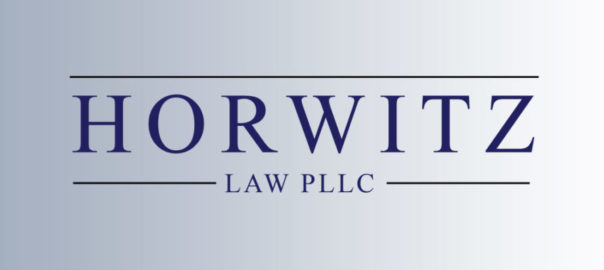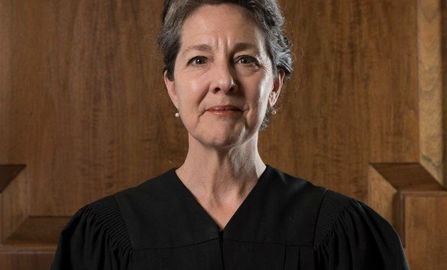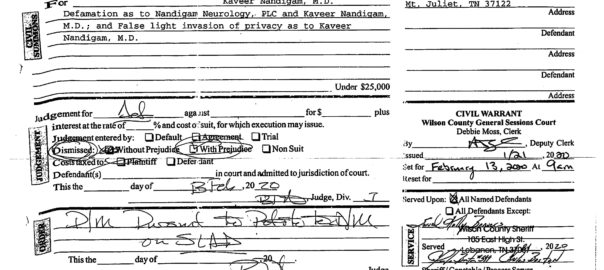Malicious prosecution—a common law tort claim—is designed to afford civil redress to people who are subjected to maliciously false lawsuits or criminal charges. Between the two, being an innocent person who is wrongfully charged with a crime based on malicious falsehoods is worse. As the U.S. Supreme Court has observed, “[a]rrest is a public act that may seriously interfere with the defendant’s liberty, whether he is free on bail or not, and that may disrupt his employment, drain his financial resources, curtail his associations, subject him to public obloquy, and create anxiety in him, his family and his friends.”[1] Put another way (as the Fifth Circuit has):
“[A] wrongful indictment is no laughing matter; often it works a grievous, irreparable injury to the person indicted. The stigma cannot be easily erased. In the public mind, the blot on a man’s escutcheon, resulting from such a public accusation of wrongdoing, is seldom wiped out by a subsequent judgment of not guilty. Frequently, the public remembers the accusation, and still suspects guilt, even after an acquittal.”[2]
With this context in mind, the tort of malicious prosecution exists to deter people from initiating knowingly baseless charges for malicious purposes and to enable those who are harmed by such charges to be made whole. Nobody seriously disputes the public policy value of such a tort. Indeed, independent of civil liability, it is a crime to initiate a knowingly false report to a law enforcement officer for a reason.[3]
By the same token, society has strong interests in encouraging people to report crimes and to insulate those who do so in good faith from retaliatory lawsuits. Nobody reasonably disputes this, either. That is why Tennessee (rightly) sets a high bar for malicious prosecution claims and recognizes multiple easy-to-prove defenses along with three separate (and overlapping) common law and statutory immunities from suit—all of which function to protect good-faith reporters from any serious fear of liability and enable them to recover their legal expenses whenever they are improperly sued.
As of yesterday, though, based on practical realities of the criminal justice system that the Tennessee Supreme Court’s unanimous opinion in Mynatt v. NTEU utterly fails to acknowledge, what was previously a high bar has become impossible to clear in nearly all criminal cases. The essential holding of the Court’s opinion is that “plaintiffs can pursue a claim for malicious prosecution only if an objective examination, limited to the documents disposing of the proceeding or the applicable procedural rules, indicates the termination of the underlying criminal proceeding reflects on the merits of the case and was due to the innocence of the accused.”[4] Because Tennessee’s criminal judgment form does not contemplate such a finding, though—and because innocent criminal defendants lack any power to force courts or prosecutors to declare their innocence on their dismissal documents—this standard is illusory as a practical matter. Thus, when a prosecutor determines that a defendant is innocent and opts to dismiss the charges against him as a result, a defendant who wishes to maintain a subsequent malicious prosecution claim must now object to the dismissal of the charges and demand a trial instead.
This will never (and should never) happen. It also makes little sense to treat criminal defendants whose cases reach trial more favorably than those against whom evidence was so weak that a prosecutor agreed to dismiss charges without one. That is not just the author’s view, either. As Justice Kavanaugh explained for the United States Supreme Court when assessing the same issue under federal law just last year:
“[R]equiring the plaintiff to show that his prosecution ended with an affirmative indication of innocence would paradoxically foreclose a [malicious prosecution] claim when the government’s case was weaker and dismissed without explanation before trial, but allow a claim when the government’s evidence was substantial enough to proceed to trial. That would make little sense.”[5]
It is not entirely clear from the Tennessee Supreme Court’s opinion—which contains several glaring errors (like misstating the relevant statute of limitations applicable to criminal proceeding-based malicious prosecution claims and mischaracterizing the substance of the trial court order under review)—that even an acquittal after trial will suffice, either. As even the most naïve observers of the criminal justice process are aware, an acquittal does not actually reflect a judgment “due to the innocence of the accused,” which is what the Tennessee Supreme Court now says is the standard. To the contrary, an acquittal “does not prove innocence but, rather, indicates that the prior prosecution failed to meet its burden of proving beyond a reasonable doubt at least one element of the crime.”[6] Independently, because a separate element of malicious prosecution claims is that a charge must have been initiated without probable cause, charges that reach trial traditionally preclude malicious prosecution liability based on the “interim adverse judgment rule” on the ground that a charge “had sufficient potential merit to proceed to trial[.]”[7] A rule that acquitted criminal defendants may (maybe) maintain malicious prosecution claims—but that defendants whose cases were dismissed before trial cannot—is also asinine, “upside down[,]” and has the “perverse consequence of ensuring that some of the most deserving plaintiffs, those who are falsely accused and whose cases were dismissed early on, could not sue . . . .”[8]
All of this is deeply unfortunate. And the basis for the ruling—which overrules two centuries of Tennessee precedent in favor of adopting the standard for malicious prosecution claims that arise out of civil proceedings—is even worse. Unlike criminal defendants, civil defendants who are victimized by fraudulent civil litigation have a wide range of tools at their disposal under Tennessee law that enable them to be made whole—including the ability to pursue sanctions even after dismissal,[9] prevent non-merits dismissals merely by moving for summary judgment,[10] and obtain up to $10,000.00 following early-stage dismissals under Tenn. Code. Ann. § 20-12-119(c). To the extent that the Tennessee Supreme Court was concerned about exposing good-faith reporters to discovery, people who are sued for malicious prosecution for reports to law enforcement also have the ability to stay discovery—every time[11]—merely by petitioning under the Tennessee Public Participation Act, and they can win immediately (and recover their legal expenses) simply by demonstrating that they reported in good faith.
The practical result of the Tennessee Supreme Court’s ruling is that—with the exception of criminal defendants whose charges are dismissed at the earliest possible stage of proceedings for lack of probable cause—no Tennessee criminal defendant will ever be able to maintain a malicious prosecution claim. A person who falsely accuses, in bad faith, someone of committing a crime can also largely insulate themselves from subsequent malicious prosecution liability just by testifying falsely at a preliminary hearing or filing a false report that facially establishes probable cause. It goes without saying that society will not benefit from this standard or the perverse incentives it creates.
Considered broadly: If the Tennessee Supreme Court wants to shut the door to righteous civil claims—something it has been increasingly aggressive about doing—it should just say so. Pretending that claims are available when—as a practical matter—they are illusory compromises the judiciary’s integrity and misleads the public by suggesting that wrongs have remedies when they do not. Judges—who enjoy absolute immunity from nearly all such claims of wrongdoing—also are not likely to appreciate the genuine consequences of such an approach. Perhaps it will take a member of the judiciary being wrongfully arrested based on maliciously false criminal charges, suffering the personal and professional humiliation of a false-but-widely-publicized criminal accusation, and finding him or herself without redress after the charge is dismissed for that to change. Until then, Mr. Mynatt deserved better.
Read the Tennessee Supreme Court’s unanimous ruling in Mynatt v. Nat’l Treasury Emps. Union, Chapter 39, No. M2020-01285-SC-R11-CV, 2023 WL 3243237 (Tenn. May 4, 2023), authored by Chief Justice Roger Page, here: https://www.tncourts.gov/sites/default/files/OpinionsPDFVersion/Majority%20Opinion%202020-1285-SC.pdf
Questions about this article? Contact the author at daniel [at] horwitz.law.
Like ScotBlog? Join our email list or contact us here, or follow along on facebook at https://www.facebook.com/scotblog.org.
[1] United States v. Marion, 404 U.S. 307, 320 (1971).
[2] Richey v. Smith, 515 F.2d 1239, 1244 n.10 (5th Cir. 1975).
[3] Tenn. Code Ann. § 39-16-502.
[4] Mynatt v. Nat’l Treasury Emps. Union, Chapter 39, No. M202001285SCR11CV, 2023 WL 3243237, at *1 (Tenn. May 4, 2023).
[5] Thompson v. Clark, 212 L. Ed. 2d 382, 142 S. Ct. 1332, 1340 (2022).
[6] State v. Turner, No. W200700891CCAR3CD, 2010 WL 2516901, at *9 (Tenn. Crim. App. June 22, 2010), aff’d, 352 S.W.3d 425 (Tenn. 2011).
[7] Parrish v. Latham & Watkins, 400 P.3d 1, 4 (Cal. 2017).
[8] Tr. of Oral Argument at 73:10–17, Thompson v. Clark, 142 S. Ct. 1332 (2022) (No. 20-659), https://www.supremecourt.gov/oral_arguments/argument_transcripts/2021/20-659_lkgn.pdf.
[9] Menche v. White Eagle Prop. Grp., LLC, No. W2018-01336-COA-R3-CV, 2019 WL 4016127, at *10 (Tenn. Ct. App. Aug. 26, 2019).
[10] See Tenn. R. Civ. P. 41.01(1).
[11] Cf. Formulas, Inc. v. LaMarche, 31 Cal. 4th 728, 734, 74 P.3d 737, 741 (2003) (noting that California’s anti-SLAPP law “potentially may apply to every malicious prosecution action”).







